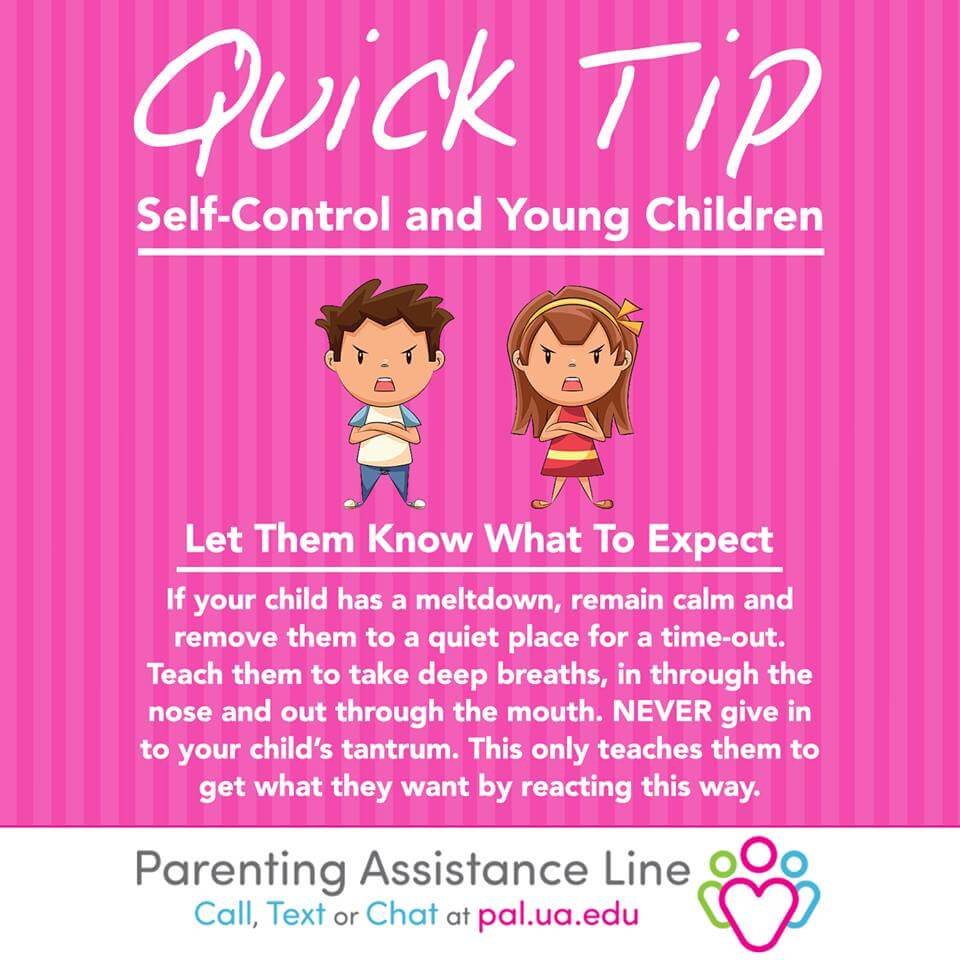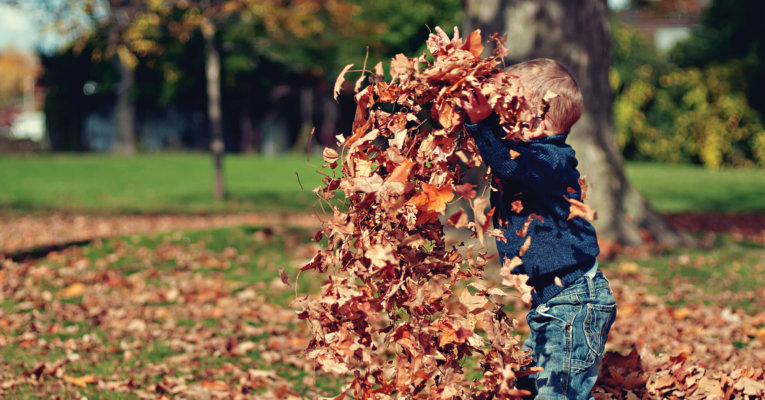Self-control is an important skill for all children to learn. It enables them to have power over their actions, cope with frustrations, and to resolve conflicts. Children who learn to control their behavior are more likely to succeed in school, develop lasting friendships, and achieve an overall sense of positive self-worth. It is a skill that begins at birth and continues to develop throughout life.
Birth to 12 months:
Babies have very little self-control. However there are ways you can begin to help them manage their feelings and emotions:
- If your baby is fussing and squirming when changing, you can talk calmly to him saying, “Almost done, little man. I know you don’t like this, just hang on.” Then as you pick him up to soothe him, he is learning that he can count on loved ones to help him regain control when he is feeling overwhelmed.
- As your nine month old picks up the remote, you gently remove it from his hand while saying, “The remote is not a toy, but you can play with this busy box instead.” The baby is learning about appropriate behavior, how to cope with disappointment, and how to accept a substitute when his first choice is off limits.
- Your 12 month old is throwing his blocks. You tell him, “Blocks are not for throwing.” Blocks are for stacking. But you can throw this soft ball into the basket.” If he reacts with crying and screaming, it is very important that you remain calm. The more frustrated you become the more frustrated he will become.
Toddlers and Pre-Schoolers:
Toddlers have minds of their own and become easily frustrated. This can lead to outbursts and temper tantrums. Even pre-schoolers have trouble stopping themselves from acting on their desires.
- Giving children opportunities to choose lets them know you trust them to make good decisions. It also helps them feel in control. Let them select between two acceptable choices. “Would you like to wear your blue shirt or the red one?”
- Help them learn to label their emotions. “I can see that you are angry because we have to leave now, but hitting me is not okay.”
- If your child has a meltdown, remain calm and remove him to a quiet place for a time out. Teach him to take deep breaths, in through the nose, out through the mouth. NEVER give in to your child’s tantrum. This only teaches him to get what he wants by reacting this way.
- Help your child learn to wait. The younger the child the shorter the wait time should be. If your 3 year old is asking for something to drink and you are occupied try,“I know you are thirsty and I will get you some juice as soon as I fold these last two towels. Would you like to help so I will finish sooner?” Use games to help your child learn to wait. Games such as ‘Red Light, Green Light’, ‘Simon Says’ and ‘Mother May I?’ are very helpful in teaching children self control.
- Children need consistent and positive feedback to learn appropriate behavior. Learn to recognize signs that your child is developing self control and tell him specifically what he did correct. Praise and attention are highly rewarding for your children. “Thank you for looking in your book while we had to wait in line. You are growing into such a big boy!”







